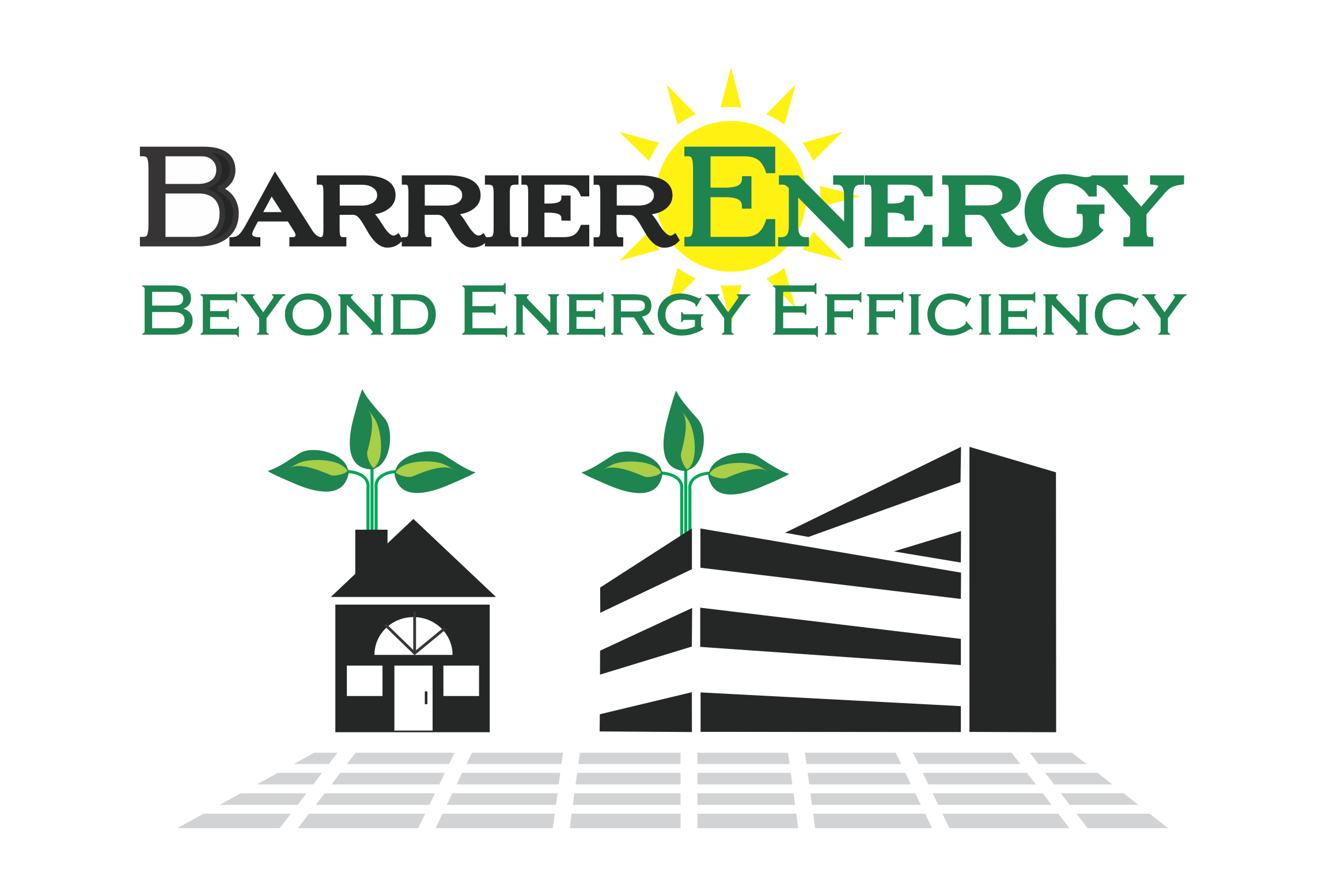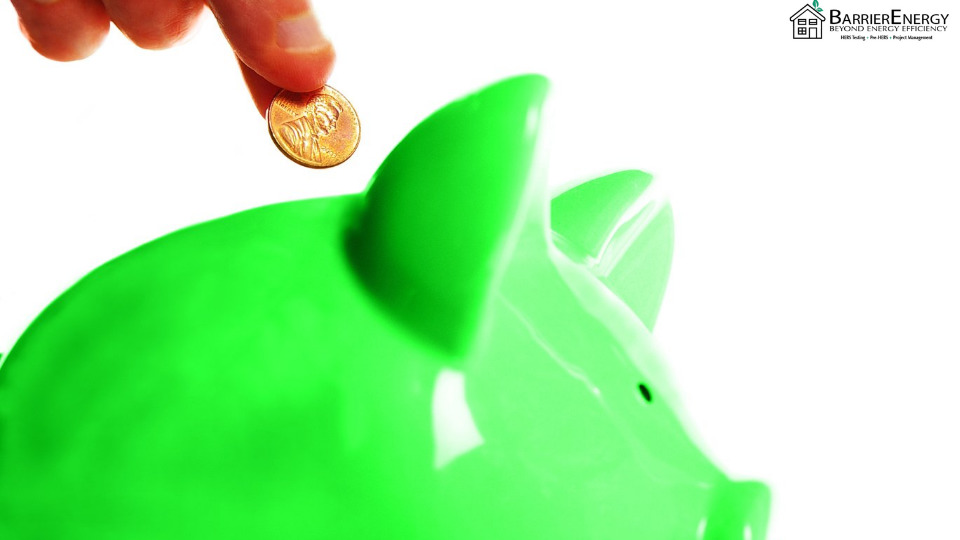What is Energy Efficiency?
Energy efficiency put simply, means to do more with less. To increase efficiency is to increase the productivity of a process or product. Another goal of efficiency is to reduce waste and pollution. Reduce, reuse, and recycle is a good rule of thumb.
When most people think of energy efficiency, they think of solar panels, wind turbines, or other renewable resources. These investments seem intimidating, so many forget the idea of efficiency altogether. The truth is that, while these are good investments for some, efficiency is a much broader term. One everyday application is real estate. Poor energy efficiency results in money and resources being wasted. Whether you are a commercial business owner, a builder, a residential homeowner, or a renter, efficiency has an impact on you. Usually, the solutions are simple and cost-effective. Increasing the efficiency of new and existing structures does not require a large investment or lots of time.
Energy Efficiency Isn’t Expensive!:
Many people believe EE is expensive. There’s a lot of misinformation, which fuels stigma. To uncover the true value of energy efficiency, one must look beneath the surface. For instance, somebody may go to the store for a new fridge. They see two refrigerators, except one is energy star rated and one is not. The one that is more efficient is more expensive, so they take the cheap one and go. However, they failed to calculate the difference in their energy bills compared to the lifetime of each refrigerator. In fact, that thought didn’t even cross their minds. If that same person had purchased the energy star appliance, the savings on their energy bills would’ve offset those initial differences. Over the lifetime of that refrigerator, they would’ve received a good return on investment. The actual cost of the energy-efficient refrigerator IS cheaper when saving hundreds of dollars per year. Now that’s myth-busting!
Running with this example, now every time that person hears or sees “energy efficiency” an alarm bell goes off in their head. Unjustly so, they believe they made the right decision and avoid it at all costs. So, don’t be that person! You will be the person who did their research and knows upfront costs versus actual costs. Now, in no way am I saying go out and replace every appliance this second! Though, the next time an old appliance breaks down, pick an efficient one to replace it. These small investments will add up over time.
Energy Efficiency as a Resource:
The reality is, energy efficiency is America’s CHEAPEST energy resource. That’s right! Why? Saving energy is cheaper than producing energy. I’m talking on a large scale; this is bigger than appliances. This is all products, all systems of production and delivery. Take, our outdated energy grid that is over a hundred years old. It’s falling apart, which requires constant work to upkeep and replace. It relies mostly on fossil fuels, which need to be harvested and processed. Think about all that work, compared to making simple efficient adjustments within current systems. There is untapped energy waiting to be harvested. By improving systems of production and distribution, energy efficiency could become the largest industry yet!
Building Efficiency:
Wasted energy doesn’t only refer to electricity and resources. Energy includes infrastructure, time, and maintenance. In real estate, the most common perpetrators of waste are HVAC, windows, insulation, appliances, and plumbing. That is why specialized inspectors are necessary to spot and correct efficiency issues. States including California legally recognize and require energy standards for buildings. Title 24, Section 6 of the California Energy Commission outlines these terms in detail. Builders and homeowners benefit from efficient buildings alike. Therefore, the whole community prospers from the time, money, and resources that are saved. How you may ask?
According to the US Office of Energy Efficiency and Renewable Energy, homeowners save money on their bills through efficiency because they are using less energy. Building systems are also less likely to deteriorate, which can result in replacement costs for damaged equipment. Codes for efficient buildings are updated every couple of years so that building materials and equipment are up to date with current capabilities. Thusly, the real estate system adapts to new information and technology. On a larger scale, a state or nation that invests in energy-efficient technology saves money. For example, the state of California has saved billions of dollars a year due to the California Energy Commission Codes.
Energy Audit:
An energy audit is performed by a licensed HERS Rater to give residential and commercial buildings an energy score. They will collect data on every aspect of the building to create an energy report. The state requires a minimum mandatory energy score, as well as mandatory compliance measures. Optional upgrades will lower energy bills while qualifying the home for “points” from the state. Points translate into rebates, tax credits, and real estate value. The state is incentivizing efficiency. They will get a great return on this investment while helping residents to implement these codes. It is a win, win!
To learn more about services and incentives, reach out to the BarrierEnergy Team.


Recent Comments